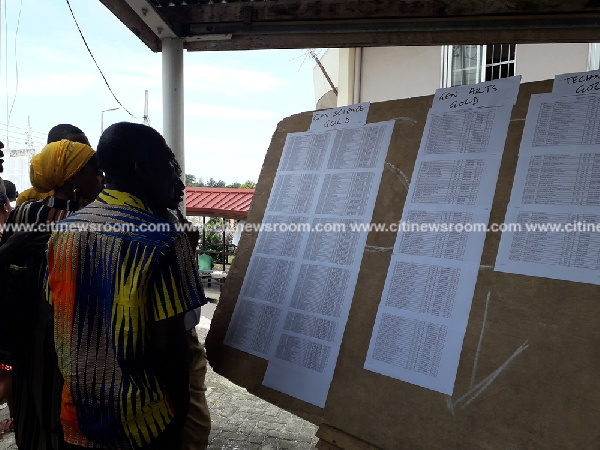GENERAL NEWS
‘Unprepared’ double-track students fearful ahead of end-of-semester exams

Some students on the double track system are pessimistic about their chances of passing their upcoming end of semester examination due to the limited time they had to cover the syllabus.
The New Patriotic Party (NPP) in September 2018 adopted the double track system for some 400 Senior High Schools in the country, to cater for the increased enrollment and infrastructural deficit brought on by its flagship policy, Free Senior High School.
The new programme creates a calendar of two semesters in a year for the SHS 1 class, containing 81 days per each semester and 41 days of vacation for a sandwich class.
Already, both the first and second groups named Green and Gold tracks respectively have completed their first semesters.
But some of the students on the Green Track, who resumed for the second semester on Saturday are sceptical about their chances of excelling in their exams.
Some of them told Citi News that the inadequate contact hours, coupled with the huge workload from their syllabus have made them ill-prepared to sit for the examination.
“I am somehow afraid because the teaching and learning days are inadequate. The teachers also go strictly to the syllabus where a topic can take two weeks for it to be fully treated. So, we are not able to cover anything,” one student said.
“We are not prepared. The topics are very broad to be completed in this short time. The teachers keep skipping the topics because of time,” another student noted.
‘Double-track may promote truancy’
Although government believes the double track system is an innovative idea that will increase accessibility, a number of educational stakeholders hold a different view.
A former Director of the Ghana Education Service, Charles Aheto Tsegah, has said the new double-intake system for Senior High Schools may promote truancy.
Though policymakers may not admit it, Mr. Aheto Tsegah said this new system was a variation of the shift system that used to be in basic schools.
In view of this, he said there may be a recurrence of challenges that existed under the now-abolished policy.
According to him, the last time a shift system was adopted in schools, a number of the children constantly absented themselves from class, resulting in them performing badly in exams or not sitting for them at all.
“Let me confess and say that the double track system is an ideal thing. In our context, we have had real challenges with children really accessing education because of the shift system and we had trouble. The previous government did a lot in terms of trying to stop it because the children were not going to school, they were pretending to go to school and then you wouldn’t find them when it’s time to write an examination or it’s time to do anything. If you tell me that this is not a shift system, I would expect all the students to enter once and they will run an academic year, but that’s not what’s going to happen.”
‘I’ll abolish double track system if elected’
Meanwhile, former President John Dramani Mahama has reiterated his intention to abolish the double track system if elected as President in the 2020 general elections.
Mr. Mahama said the NPP administration hurriedly implemented the policy without engaging thoroughly enough with stakeholders.
“I will also work hard to abolish the double track system in the shortest possible time. We will do this by investing massively in the expansion of school infrastructure such as additional classroom blocks and dormitories and the completion of 200 Day schools popularly known as E-blocks that we started to enable our children attend school at the same time and have adequate contact hours with their teachers,” said the former President.
Source: citinewsroom.com









